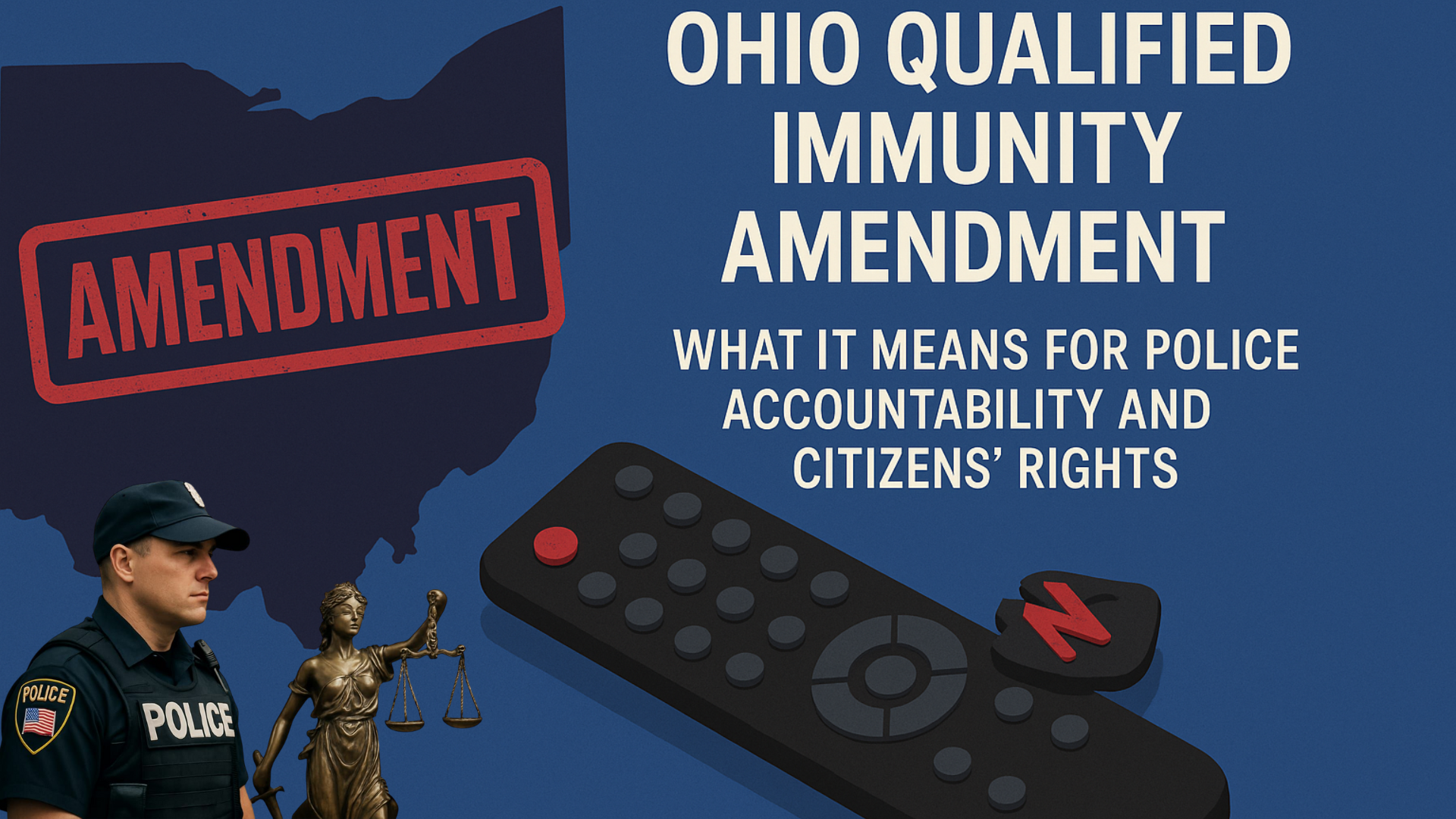Explore how the Ohio Qualified Immunity Amendment could impact police accountability, citizens’ rights, and the legal system. Key details and insights inside. In 2025, Ohio voters will face a critical decision: whether to pass the Ohio Qualified Immunity Amendment. This proposed constitutional change could significantly reshape how police officers are held accountable for misconduct — and how citizens can defend their rights in court. Let’s dive into what qualified immunity means, the purpose of the amendment, and how it could impact both law enforcement and public trust.
What Is Qualified Immunity?
Qualified immunity is a legal doctrine that shields government officials — particularly police officers — from civil lawsuits unless it can be shown they violated “clearly established” rights. Critics argue that it often prevents victims of police misconduct from receiving justice, while supporters believe it protects officers from frivolous lawsuits when they perform their duties in good faith.
What the Ohio Amendment Proposes
The Ohio Qualified Immunity Amendment seeks to eliminate or significantly limit the use of qualified immunity in state courts. If passed:
- Citizens who believe their constitutional rights were violated by government officials could sue directly in state court.
- Officials would no longer be automatically shielded unless they can prove they acted reasonably and within the bounds of the law.
- The standard for proving misconduct would shift, lowering barriers for plaintiffs seeking justice.
This move mirrors reforms proposed or enacted in other states like Colorado and New Mexico.
What It Means for Citizens’ Rights
1. Greater Access to Justice
Victims of misconduct would find it easier to bring lawsuits in Ohio’s courts, potentially leading to more accountability and greater public trust.
2. Empowering Communities
Communities historically affected by police abuses — particularly minority groups — could feel more empowered to seek redress without the overwhelming barriers previously posed by qualified immunity.
3. A New Legal Landscape
Attorneys specializing in civil rights cases would likely see a rise in filings, leading to a broader interpretation of citizens’ rights under Ohio law.
Arguments for and Against the Amendment
Supporters Say:
- It levels the playing field for citizens seeking justice.
- It holds public officials accountable in a way federal courts often do not.
- It restores faith in the legal system, especially among marginalized communities.
Opponents Say:
- It could lead to a flood of frivolous lawsuits, burdening courts and draining taxpayer resources.
- It might cause hesitation among officers, impacting proactive policing.
- It risks financial strain on municipalities defending increased litigation.
National Context: A Broader Movement
Ohio’s proposal fits into a broader national debate about police reform after high-profile incidents of police violence, such as the deaths of George Floyd and Breonna Taylor. While Congress has debated federal qualified immunity reform for years, several states have taken matters into their own hands — with Ohio potentially becoming the latest.
Conclusion
The Ohio Qualified Immunity Amendment represents a major shift in how justice is pursued in the state. Supporters argue it is necessary to ensure true accountability and to rebuild public trust, while opponents caution about unintended consequences for policing and budgets.
As Ohioans prepare to cast their votes, the stakes could not be higher — not just for law enforcement, but for every citizen’s constitutional rights see more.

